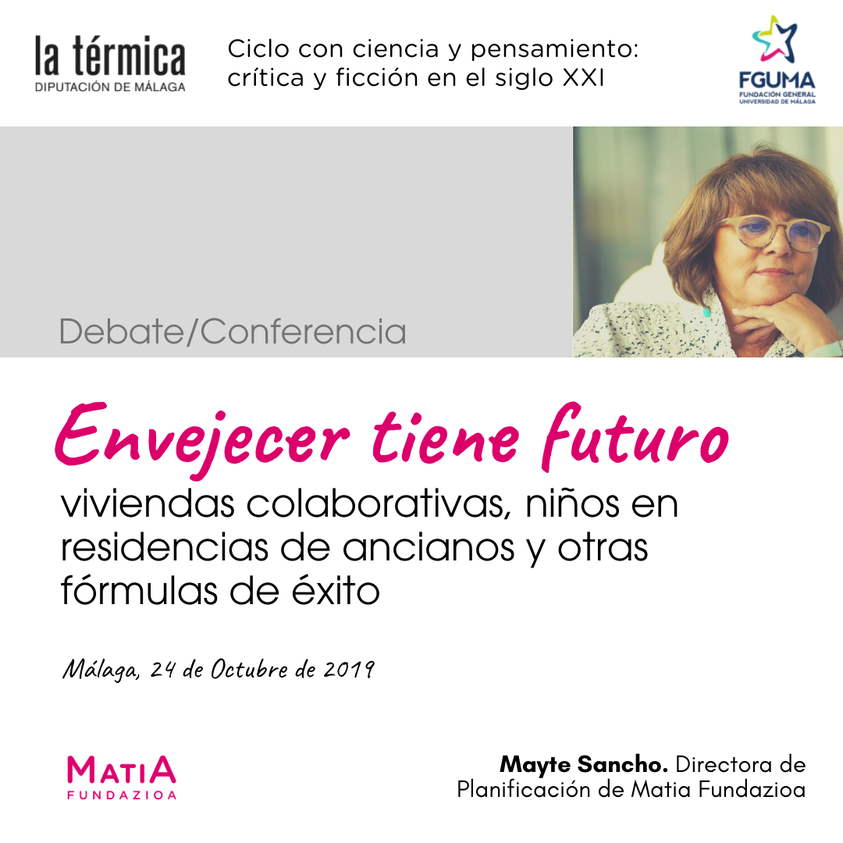The future of ageing: collaborative housing, children in old people's homes and other formulas for success
Debate hosted by the cultural centre "La Térmica" within the cycle with science and thought: criticism and fiction in the 21st century with Mayte Sancho, director of Planning at Matia Fundazioa and José Manuel Marín Carmona, geriatrician and editor of the Gaceta de la Sociedad Española de Geriatría since 2012.
The so-called longevity revolution has altered the meaning of what it means to grow old. The increase in life expectancy pushes people to continue learning, especially in a society in constant change, and also forces them to work longer, to retire later and more gradually, to persevere in the cultivation of health and skills... Differences based on age are losing value, as the identity of human beings is largely made up of lifestyles and patterns of leisure and consumption. Increasingly, older people are recognised and acknowledged as resource providers, as agents of change rather than passive bystanders, consumers or users. And although much remains to be done, the direction to be taken is quite clear.
The great social and political challenge around ageing is to generate projects in favour of the community in which age is not a differentiating factor. The challenge is to make society more egalitarian and able to recognise the value of each person irrespective not only of gender and social status, but also of age. But for this to become a reality, the right attitudes are needed, both individually and collectively. And also environments that facilitate maximum personal autonomy, even in situations of vulnerability and dependence: collaborative housing (the famous cohousing), social networks that protect against loneliness, itineraries outside the home, cohabitation units, ageing-friendly cities... All this is already underway and must bring well-being for all citizens, not only for the elderly.
Free admission until full capacity is reached.


.png)